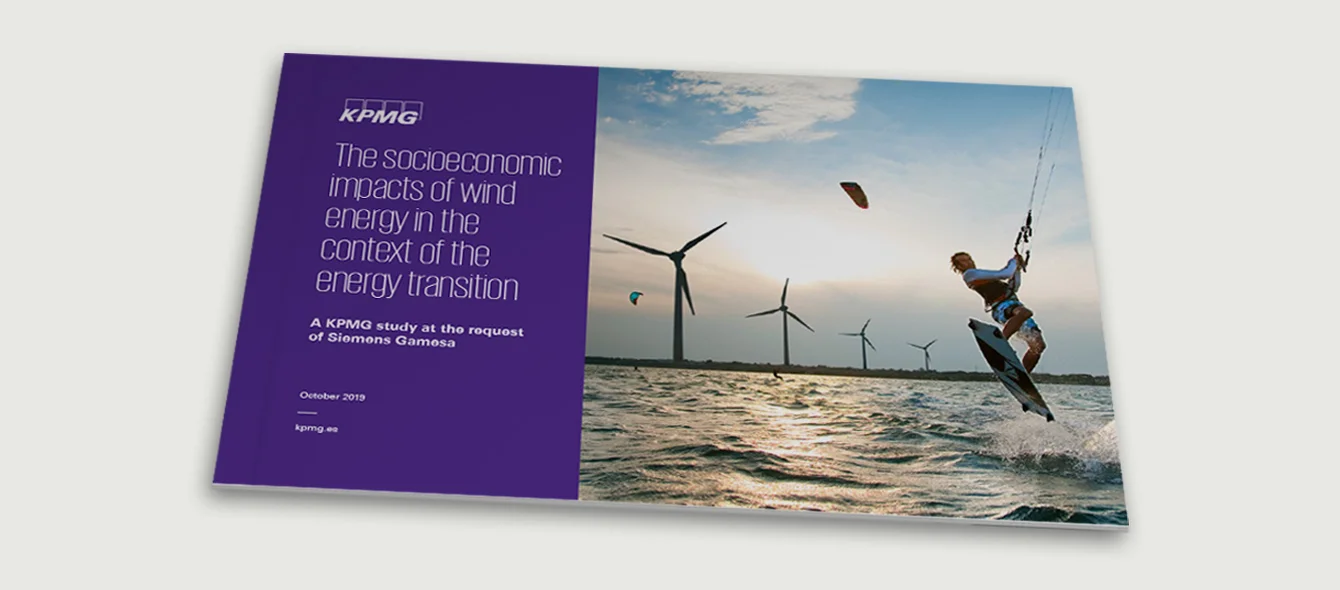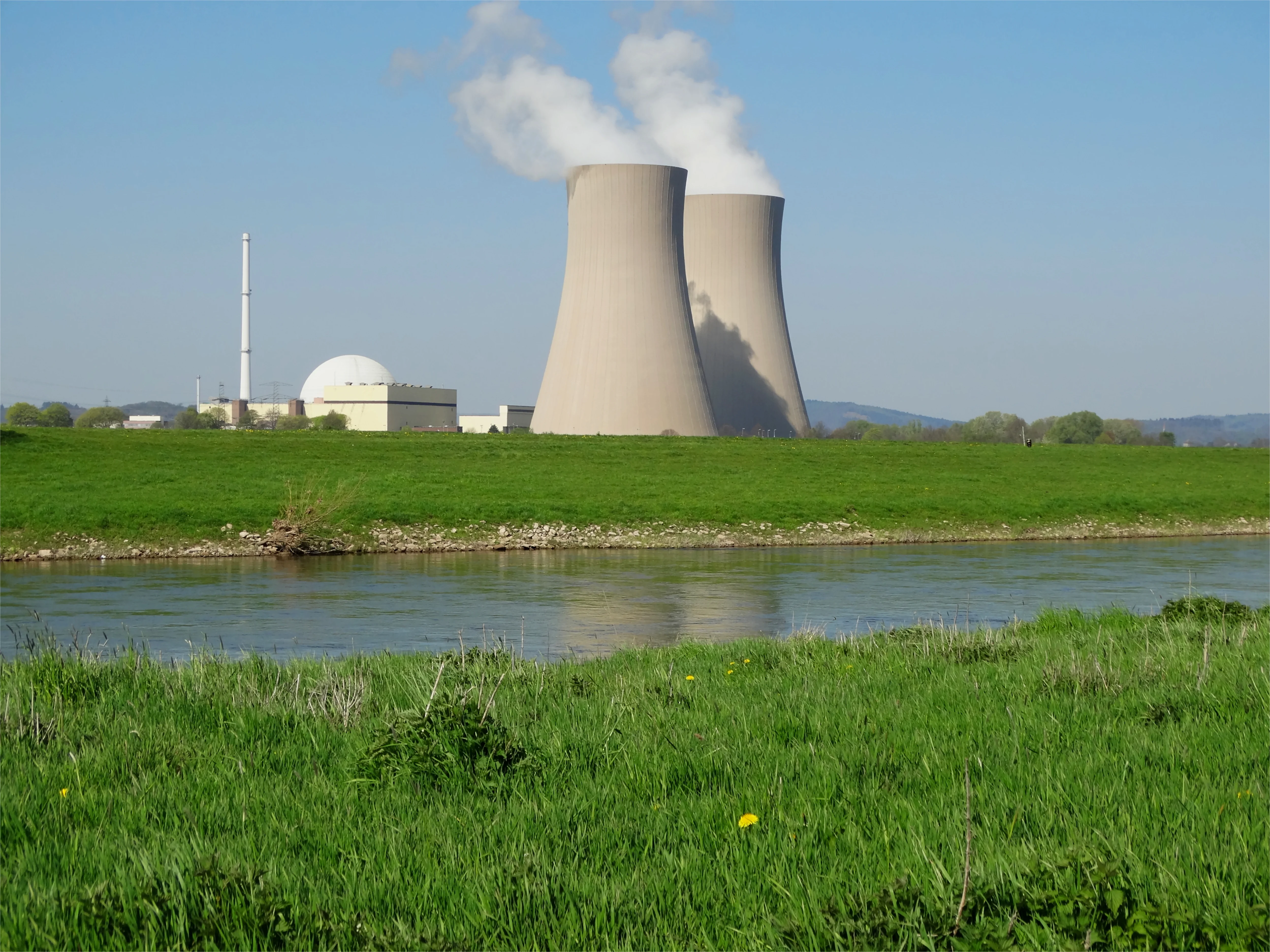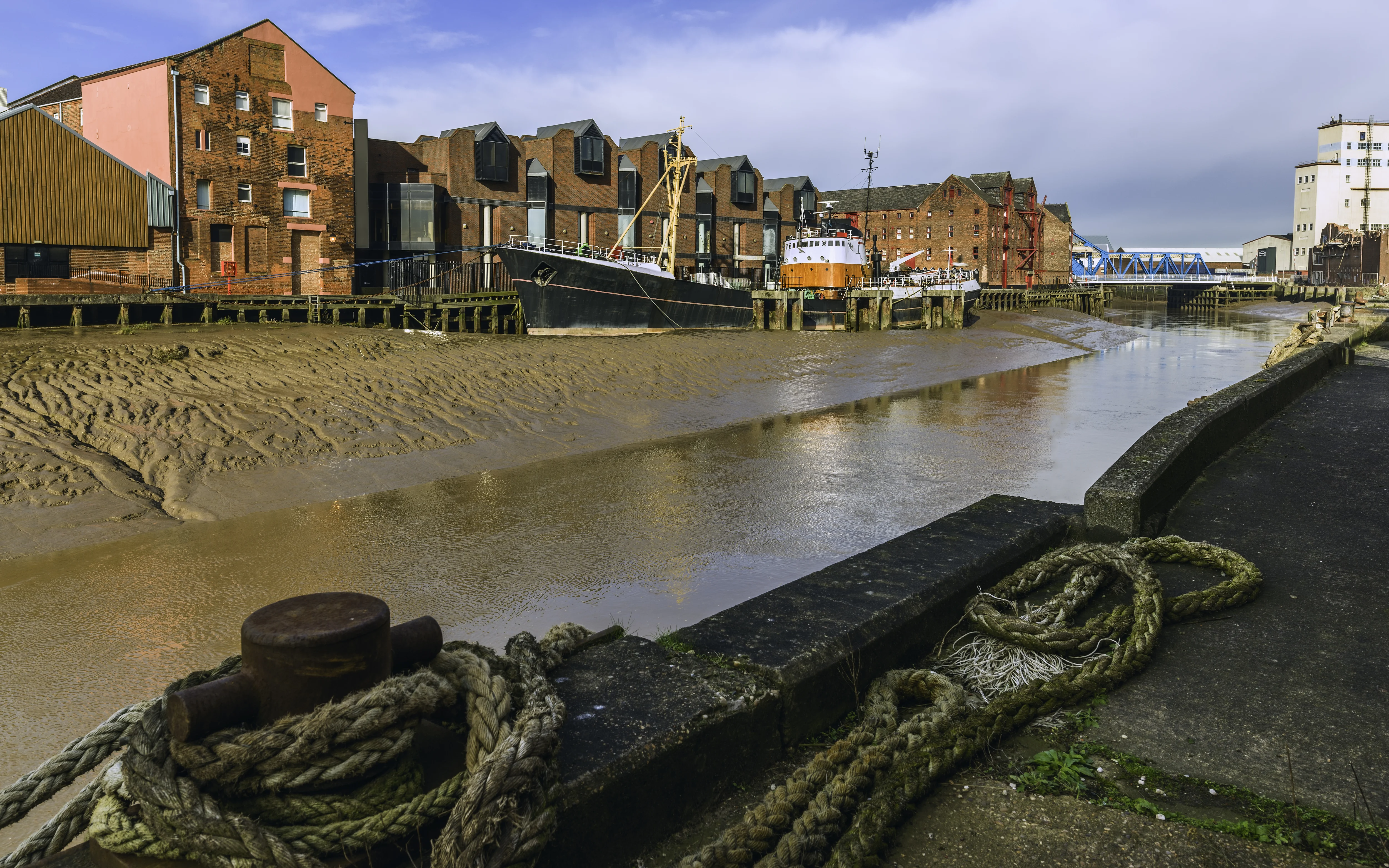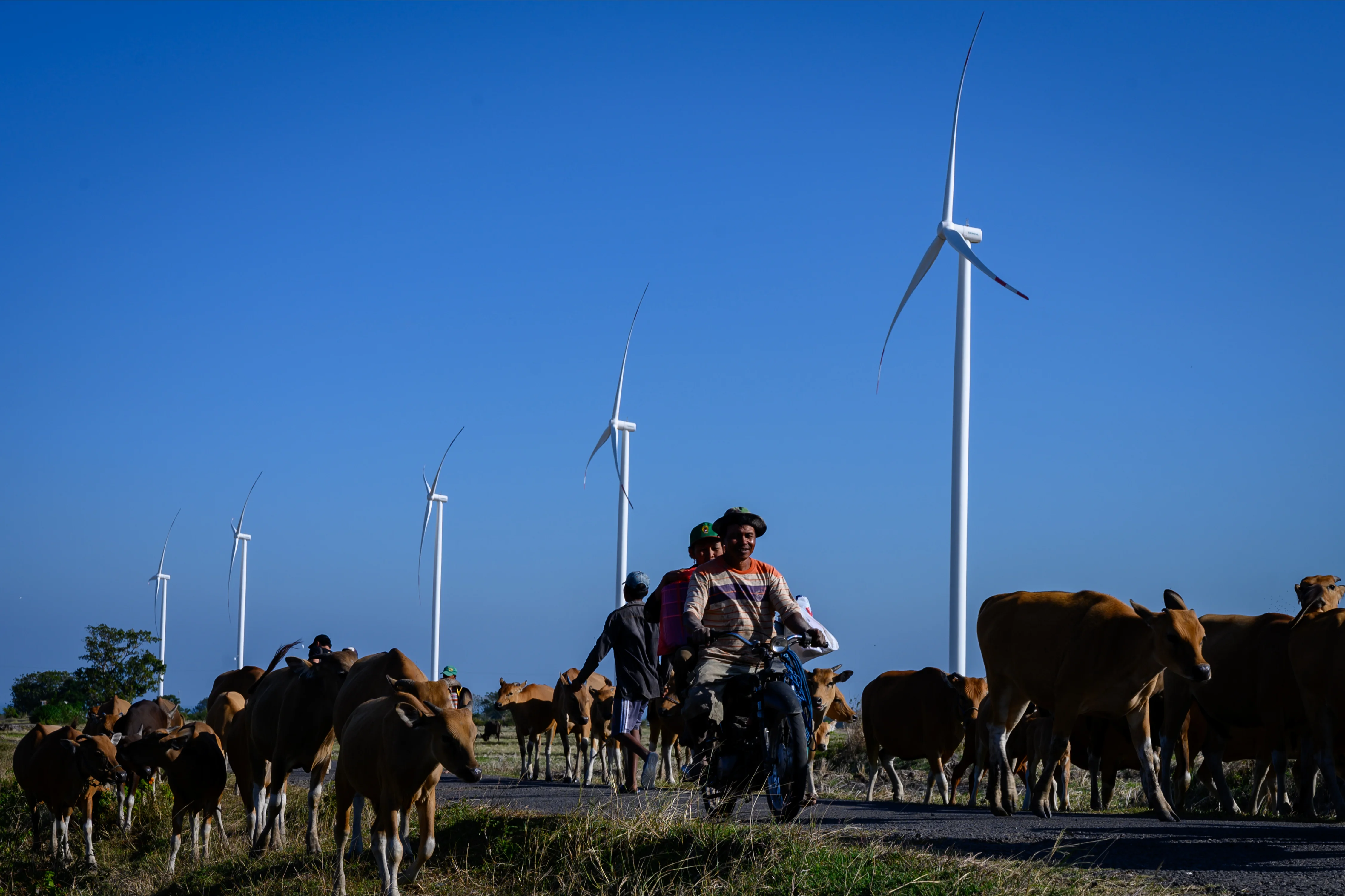There is an abundant amount of renewable energy out there, enough to cover humanity’s demand for millennia. Its use depends, more than anything, on technical solutions. But with huge innovations achieved in the last decades, its commercial potential has grown massively. Yet, there are still some concerns and limitations on the socioeconomic side – especially in densely populated areas, such as Europe, the American coast or in some Asian countries.
To learn more about the effects of renewable energy use, the professional service firm KPMG has conducted a study on behalf of the German-Spanish turbine manufacturer Siemens Gamesa Renewable Energy about “The socioeconomic impacts of wind energy in the context of the energy transition”. The en:former spoke with one of the authors, Carlos Solé, about their main findings, common misperceptions and local benefits of renewable power station deployment.
en:former: What is the most surprising finding of your study?
It is widely known that renewables reduce emissions and can improve energy security, for instance. There is more and more debate on the impacts in terms of jobs, economy etc., with increasing evidence that thanks to lowering costs, renewables can actually improve the economy. However, a surprising finding that is not commonly discussed are its impacts on water use.
No doubt, this is not what first comes to mind if you think of renewables. So, how can wind power, as you write, save up to 1.6 billion m³ of water – that’s two and a half times the volume of Loch Ness or one third of Lake Constance?
Keep in mind that thermal power plants need water for cooling, just like the motor of any car. They take some water from nearby rivers or lakes, and they normally return less of it because some has evaporated. Furthermore, the water they do return is warmer, which also causes some local impacts. Well, wind energy does not require any water, because it does not generate heat. This benefit, which may sound minor, is actually a key driving force for wind energy in countries like China and India. With climate change, droughts are becoming more frequent, and in some cases they are having to shut down coal power plants because not enough cooling water is available. Even France has had some issues over the last summers to cool down their nuclear power plants.
Still, in Germany, among other countries, Wind energy has a reputation problem. People claim turbines kill birds, destroy the nature’s beauty and that their noise makes people sick. What do you tell those people?
Yes, we are following the social attitudes towards wind turbines in northern Germany. These are indeed difficult issues, but all energy sources have an impact. A warming planet with extreme weather events such as floods and droughts, and changing ecosystems, also kill birds and destroy nature’s beauty. The scientific evidence says that on a global level, the impacts of renewables are actually smaller than those of traditional electricity sources. But of course, at a local level, challenges are not evenly distributed. People living close to old, polluting power plants could be happy, but people living close to new wind turbines may feel worse. This is in the end a political issue, and these are the key challenges of managing the energy transition.
On the other hand, you found that wind energy can create value at a local level. How is that?
For instance, new wind power plants can create domestic value in the form of jobs and income generation for local firms. Most of local jobs are generated in the wind turbine installation phase, when workers come to the region and local goods and services are procured, e.g. truck drivers, cement. This phase lasts around two years. Once built, the wind plant enters the operation and maintenance phase, which lasts for close to 30 years. Here, new professionals can be needed in the region, bringing qualified people to rural areas. Offshore wind can bring substantial benefits to economically deprived coastal communities (such as those that used to depend on ship building or fishing), as is the case in Humberside, UK. Furthermore, and in order to tackle social acceptance issues like those in your previous question, governments can enhance local value creation through regulations such as profit-sharing provisions, which allow municipalities to receive new, additional tax income and benefit from wind turbines.
Contrary to what many people think, you found that a more ambitious effort by global lawmakers could enhance economic growth – adding up to about 10 % of global GDP by 2050. Which factors led you to this conclusion?
The perception that reducing emissions and mitigating climate change through renewables was bad for the economy, may result from reports that were published some years ago, when renewables were more expensive than traditional energy sources. The key point is that this is not the case anymore for certain technologies such as wind and solar photovoltaic. The cost of these technologies has fallen around 80% in the last ten years, and they are nowadays the cheapest energy source in more and more countries. New economic analyses that include this fact and are recently coming out point in that direction. However, this effect is not evenly distributed. It will benefit countries like Germany, which import fossil fuels and export renewables technology; but it has the potential to harm fossil-exporting countries or countries that rely on foreign renewable technology. This is once again a key political challenge of managing the transition. But on a global level, the most recent evidence suggests we would be better off and our GDP would be indeed bigger.
Carlos Solé joined KPMG in 2010. Since then he has been responsible for the creation and development of the Economics & Regulation department of KPMG in Spain.
Photo credit: © Siemens Gamesa / KPMG




